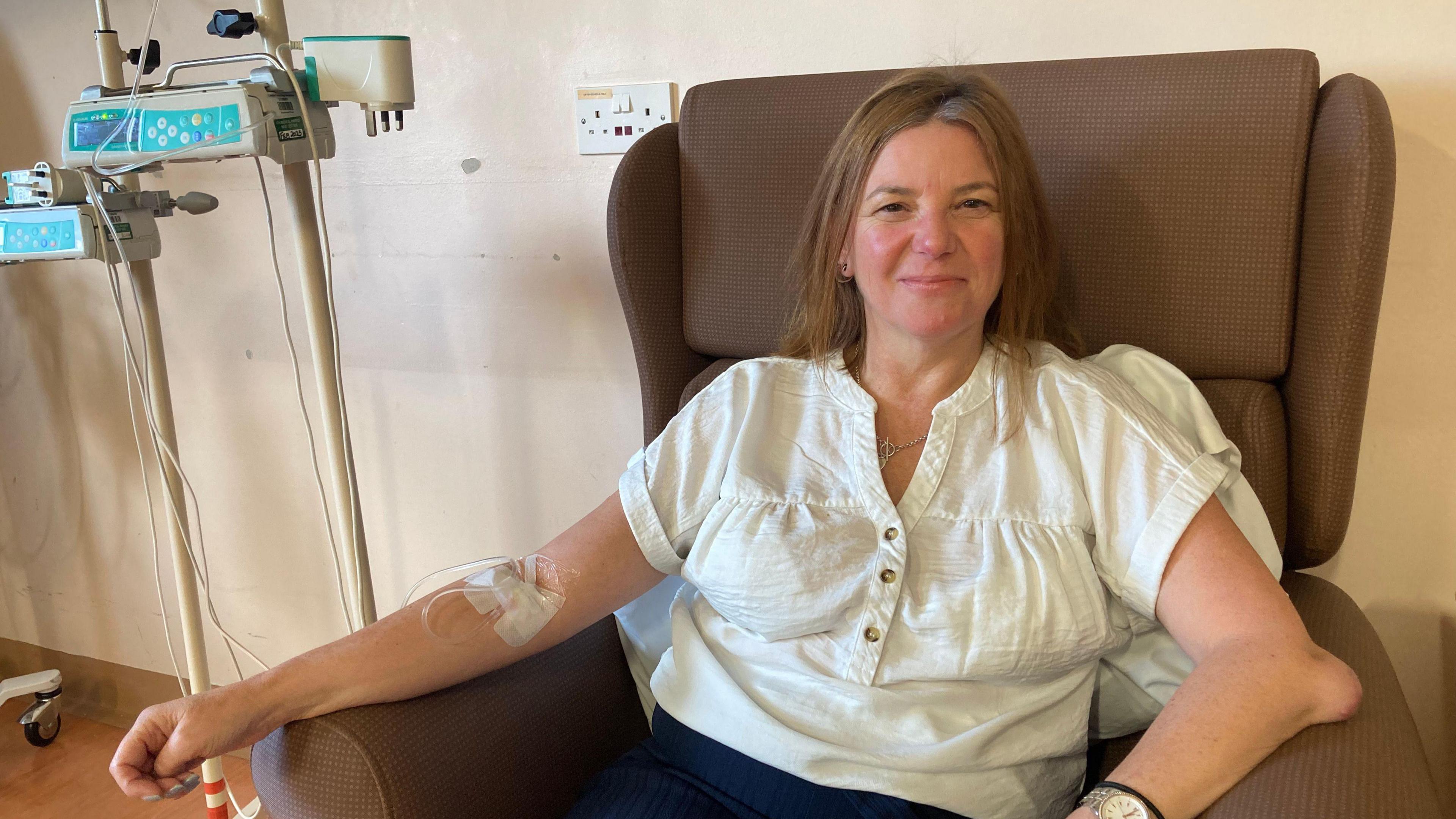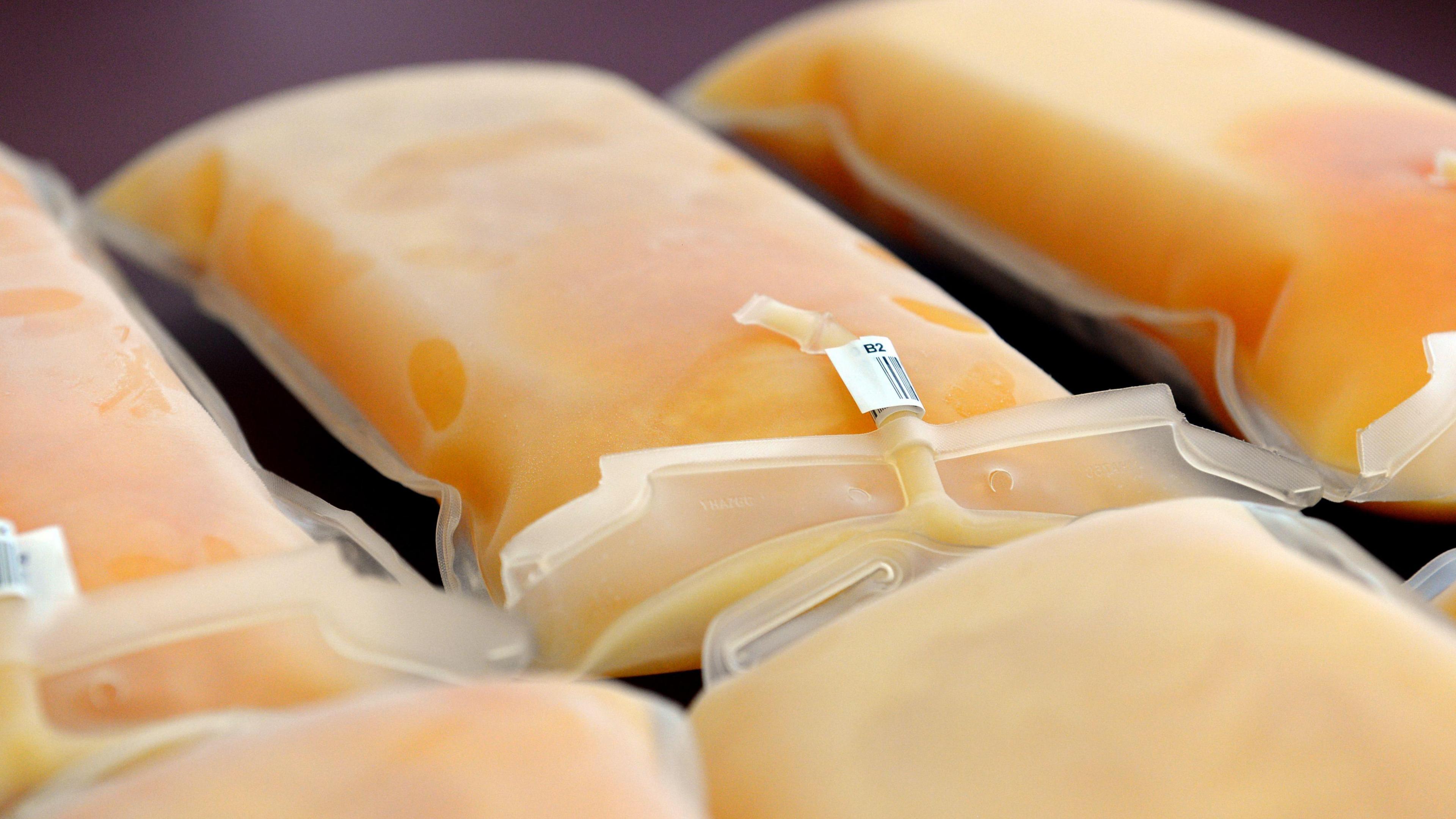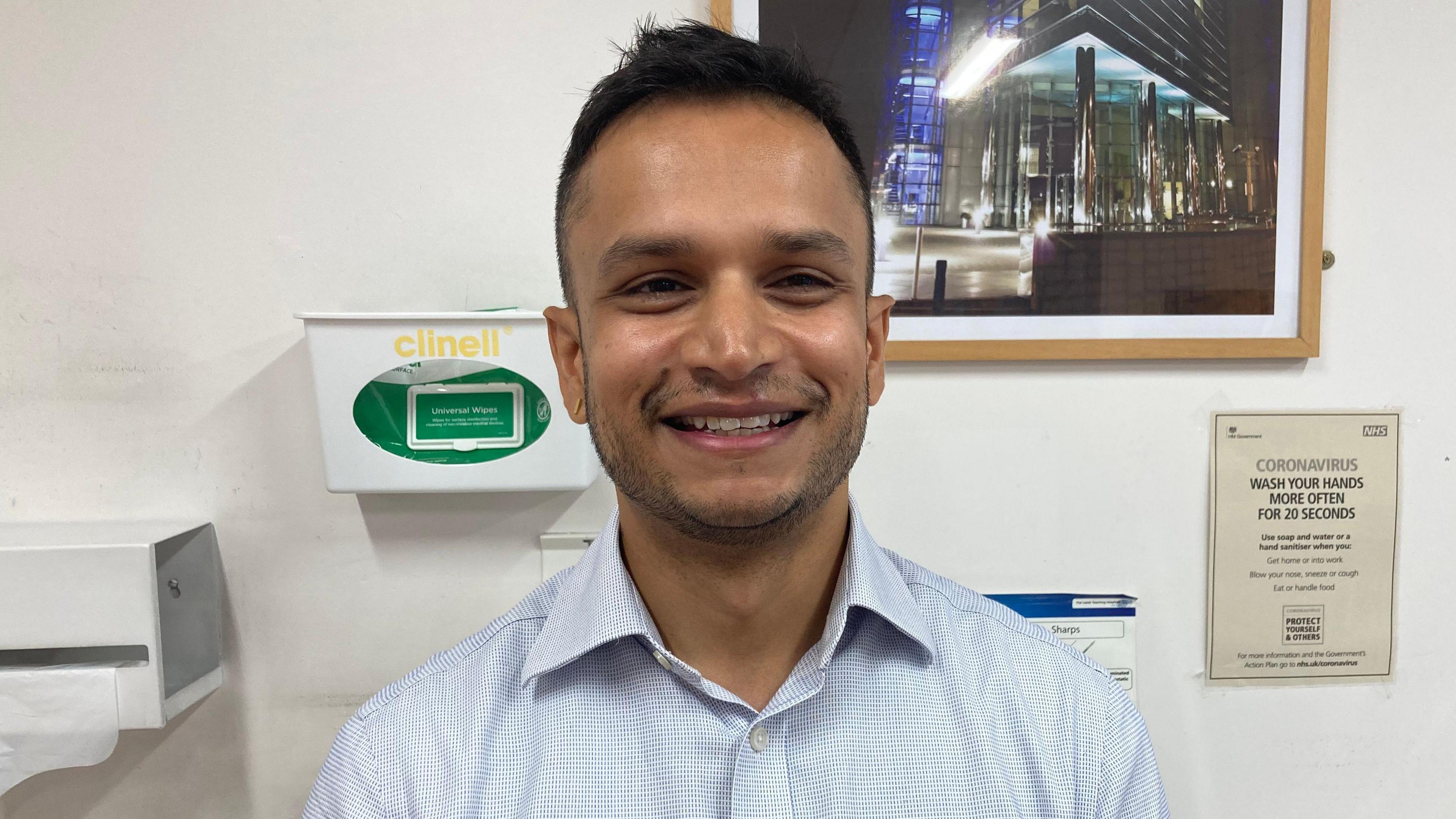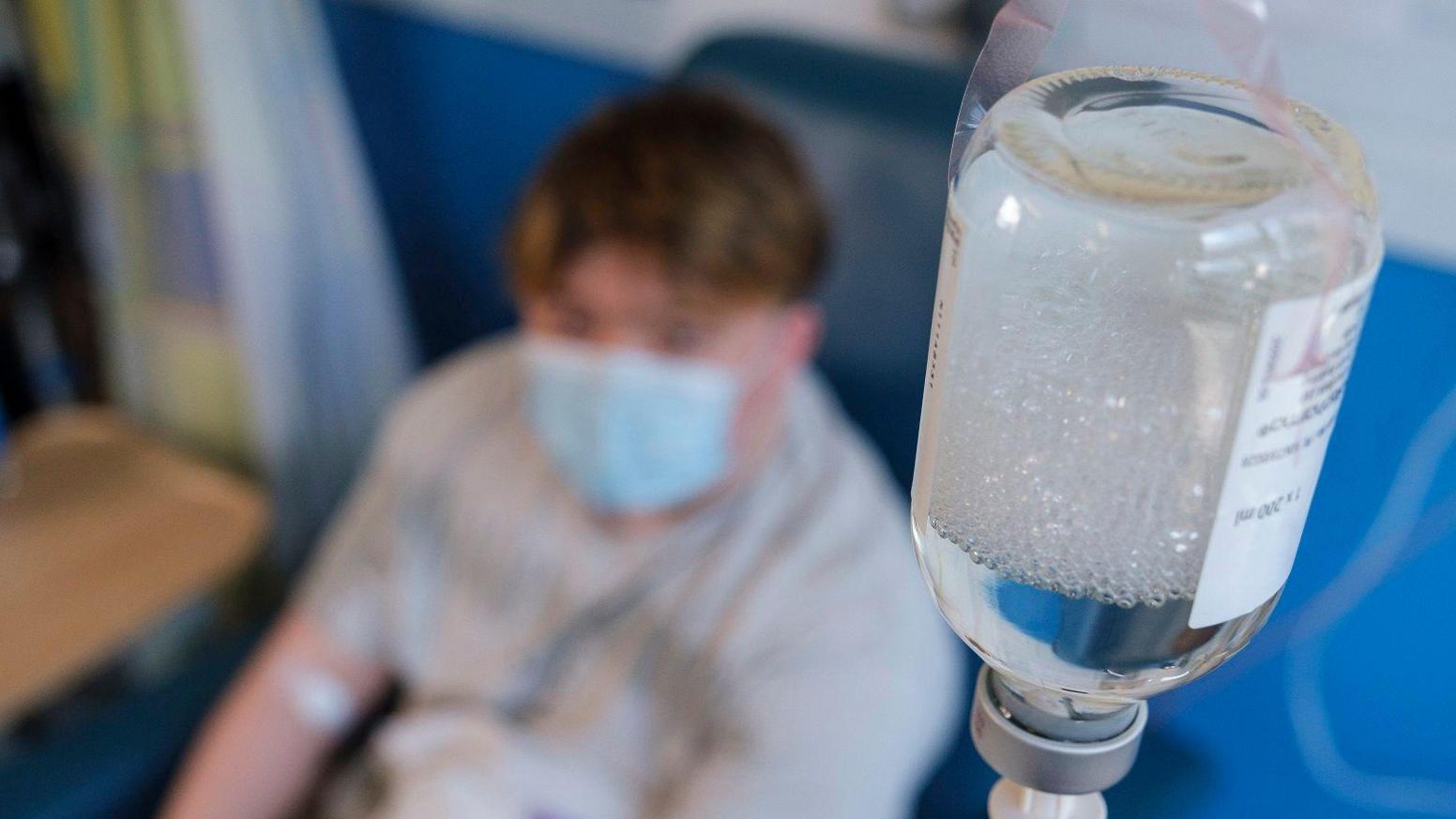'Plasma infusions have been life-changing'

Samantha Bloomfield has received monthly plasma donations for the last 14 years
- Published
For the last 14 years, Samantha Bloomfield has received a monthly blood plasma infusion to help manage an immune deficiency. Until six months ago, plasma supplies were imported from the US - but after a 25-year ban was lifted on UK sources, she is now able to rely on donors here.
"Every cold I used to get would turn into an infection," Ms Bloomfield told the BBC.
"I would end up getting pneumonia."
Ms Bloomfield has common variable immune deficiency (CVID) which is the name for a group of conditions that affect how the body's immune system makes antibodies and fights infections.
People with CVID are unable to make protective antibodies and therefore become susceptible to infections.
"There was one Christmas, I had pleurisy in December and then a chest infection in January," Ms Bloomfield recalled.
"It is a blur that was infection after infection, three or four per year.
"I have had to call an ambulance, I have had to have a week in hospital in respiratory."
The 55-year-old from Gildersome in Leeds was diagnosed with CVID after an operation on her sinuses.
Doctors at Bradford Royal Infirmary discovered she had contracted an infection that did not clear with antibiotics.
She began plasma infusions at St James's University Hospital in Leeds.

The UK banned the use of domestically collected plasma in 1998, following concerns over a potential increase of recipients getting Creutzfeldt-Jakob disease
With plasma making up 55% of blood, it is so precious as a medicine that it is known in the medical profession as "liquid gold".
The UK banned the use of domestically collected plasma in 1998, following concerns over a potential increase of recipients getting Creutzfeldt-Jakob disease.
Plasma infusions relied solely on imports before the ban was lifted.
Since the first patients began receiving treatment in March 2025, 2,221 NHS patients have been treated with life-saving medicines made from UK-donated plasma.
"It is a huge landmark for us," said Anoop Mistry, consultant clinical immunologist at St James's University Hospital.
"It offers a huge resilience; there are quite a lot of disorders where we just need plasma.
"There are other treatments, but they are not as effective.
"If we can get the plasma to a patient in an effective way, it is life saving."

Consultant clinical immunologist Anoop Mistry said the use of UK plasma was life saving
Leeds Teaching Hospitals NHS Trust has now switched nearly all of its patients to new medicines made from UK-sourced plasma.
Sarah Denman, clinical pharmacist at St James's University Hospital, said the move was also "really important" to add to the plasma pool worldwide.
"The more donations we get, then that can be converted into plasma, which helps us with that resilience and assuring supply for those patients that really rely on this treatment."
Ms Bloomfield said the move to UK-sourced plasma had given her "peace of mind" for the future.
"Not just for me, but for all patients reliant on regular infusions.
"I went from zero defences at all and now it keeps me at a level where I can fight my own infections.
"I could take a week off work at a time with a chest infection, but now I am like everybody else, I do not have an infection, I do not feel ill.
"It is incredible to think that I am receiving this treatment made from the plasma of UK blood donors.
"Infusions have been life-changing for me."
Get in touch
Tell us which stories we should cover in Yorkshire
Listen to highlights from West Yorkshire on BBC Sounds, catch up with the latest episode of Look North.
Related topics
- Published6 March

- Published17 August 2021
